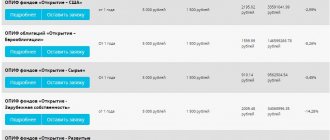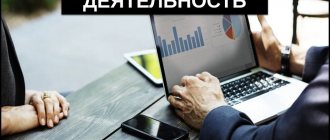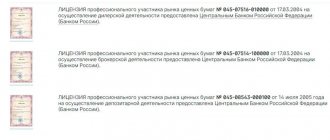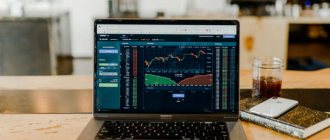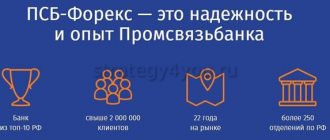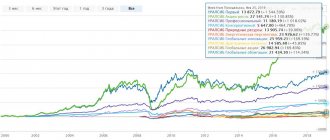You can make money in Forex in different ways and you don’t have to trade on your own. One of these ways is investing in trust management. We will talk about what it is, what types of trust management there are and what their pros and cons are, and how not to lose your money completely in this article.
Trust management in Forex is the transfer of an asset (money) for management to a trader (manager) for the purpose of making a profit. The manager takes part of the profit as a commission, the rest is taken by the investor (principal). In this case, the investor remains the owner of the funds; the manager only provides a service to increase them.
We will talk about the types of trust management and what pitfalls and some common fraudulent schemes await investors below.
What it is
Trust management is one of the forms of Forex trading. Investors who do not know how to trade themselves give money to a qualified trader/manager. He collects money and trades it on his own behalf. Profit is divided in proportion to the contribution. The broker may also allow investors to copy the trades of top traders to earn like them.
Brief history of appearance
In fact, the concept of trust management is not new. Since the advent of the stock market, there have been enterprising people who wanted to put their savings into business without directly participating in it. But finding a manager was a difficult task. Often he was chosen by recommendation or personal acquaintance.
In the late 2000s, trading moved online. It has become easier for investors and managers to find each other. Brokers immediately took the position of intermediaries, providing guarantees to both parties.
Social trading systems with copying signals were invented in the USA. As an alternative to them, in 2008, the domestic broker Alpari launched the PAMM service. Since 2010, it began operating as a separate brand.
Who is it suitable for?
Trust management is recommended for use by all investors who are interested in making a profit from trading on the Forex market, but either they do not have the time to trade themselves, or they do not have enough knowledge. The participation of intermediaries - brokers - provides a certain level of guarantees, and a profitability of 20-30% looks very good, considering that you don’t have to do almost anything yourself.
What is the essence of trading using signals?
The idea is simple - the investor copies transactions (signals) of real traders. A broker here is an intermediary who provides tools for convenient work, maintains control over money for the investor, and gives the trader confidence that he will receive his share. The broker displays an online chart showing the successes of traders, and investors study and choose who to follow as an example.
Here's a sample.
The essence of trading using signals is that you make money on Forex, even if you don’t know anything about it. All you need is the ability to analyze charts and draw conclusions based on trading indicators. The process is automatic.
There is no need to monitor the trader manually. He trades on his own accounts, Forex transactions are automatically duplicated in the investor’s account. For such “happiness” the investor usually pays a fixed rate. On some platforms, traders can set their own share. A broker is a guarantor of fulfillment of obligations by all parties.
How to receive signals
To invest in Forex in this way, you need:
- Register with a broker.
- Install a trading terminal.
- Register an account through your broker's personal account.
- Select a trader for trust management from the rating.
- Subscribe to it.
- Confirm your consent to participate.
- Pay for access to the system.
After this, transactions will be copied automatically.
Where to find a manager for a remote control
For the domestic market, PAMMs have long become a classic method of trust management.
The inventor of this “trust” scheme is the Alpari broker, but very soon other brokers began to borrow and offer their own products based on it.
The operating principle remains the same. The trader opens a separate account with the broker, which allows him to accumulate funds from third-party users of the system. It looks something like this:
The investor selects a trader from the rating provided by the broker. One account accumulates funds from any number of investors. Profit is proportional to the investment.
Why not all managers prefer to accept investments through PAMM accounts
Working with a PAMM account requires a high level of responsibility. Both the manager and the intermediary undertake a number of obligations. Therefore, signal copying systems are now gaining popularity. It is easier for a trader to trade for pleasure and demonstrate good statistics, and investors will generate income by copying transactions. Convenient, honest and transparent.
Which remote control method is better?
Of course, direct deposit management carries unreasonably high non-trading risks. This means that by simply transferring money to someone’s account, be it a private trader or an organization, you risk being blatantly deceived. Above I provided a link to a typical story of such deception, read it, it’s useful. This way you will understand the lengths to which scammers are willing to go to get your money.
One of the most sensational stories at the time was the story of the manager VladimirFX. He was widely advertised, was very famous among all Forex investors and subsequently scammed hundreds, if not thousands of investors out of their money. This is a clear illustration of the risks you take on when investing directly, bypassing modern services. Fortunately, instead of direct remote control, there are much more reliable ways to invest. Let's look at the example of a very popular method - PAMM accounts.
On such an account, the trader-manager makes transactions, but does not have the opportunity to withdraw these funds. Also, you do not transfer this money to him directly. The transfer is made to the broker's account, and then from this account you invest in PAMM. All you have to do is choose a reliable broker with PAMM accounts and then a reliable manager who will really be able to increase your money.
Who is preferable: a private trader or a management company
The choice is difficult due to the fact that both management systems work and generate income, and the reviews are absolutely polar - everyone praises their own method. Therefore, we will build on the obvious pros and cons.
Management Company
Pros:
- transparent reports;
- documenting the transaction;
- risk reduction (professional managers trade from several accounts to hedge risks).
Of the minuses: the investor either agrees with the rules of the management company or does not trade Forex. No individual agreements. Well, the commission, accordingly, is higher than that of a single person.
Private trader
Pros:
- you can negotiate the terms of the transaction and receive an individual offer;
- small commission;
- low financial barrier to entry.
Cons - you are not immune from unprofessionalism or fraud. Therefore, you need to choose a manager carefully.
Tips for choosing a trader
There are two main parameters that need to be taken into account when choosing a Forex manager:
- account age;
- account profitability.
Age speaks volumes about the experience of the trader. Its statistics reflect the real profitability of the Forex account. If an account has been in existence for several months, it is difficult to correctly assess the reason for its success - real professionalism or just random luck.
Ratings of the best companies with remote control
The official ratings of trust management companies available on the Internet are divided into various categories, allowing the investor to evaluate the manager according to certain parameters.
Among the main ones:
- reliability;
- number of assets under management;
- volume of own funds in trade;
- insurance reserves.
Data for them is provided by the national rating agency.
How much can you earn by investing in PAMM?
Thanks to advertising and aggressive marketing, a false impression has been created about Forex that trust management is a magic wand that will conjure 200-300-400% without any risks or additional costs.
Thinking like this is a major mistake. If we analyze the top 10-15 reliable traders, we will see that the average profitability they offer is 5-8% per month. This is a maximum of 100% per annum. The most comfortable range is 20-40%. Here the probability of return is above 80%. But, of course, no one will give complete guarantees on Forex.
Investor's personal account and example of profit calculation
After registering with a broker and activating a trading account, functionality will appear in your personal account to search for certified Forex traders and appoint them as account managers. When the parties accept the terms, the trader has access to the investor's funds. His benefit is a percentage of the profit. It is agreed upon in advance.
For example: a trader requires a commission of 30%, we give him 1000 rubles. At the end of the month, the trader made 50% of the profit, that is, 500 rubles. Of this amount, we give the trader his 30% or 150 rubles. Our net profit, accordingly, is 350 rubles. Plus the original one. In total, upon completion of the transaction, we have 1,350 rubles in the account.
We can withdraw this money, choose a new manager, or continue working on Forex with the old one.
Terms and agreement of trust management of money
The first stage of trust management is the search for a manager. This can be either a company or a private trader.
When a suitable candidate has been found, investment terms can be negotiated. The main points are the duration of the transaction and the commission percentage. Brokerage firms usually provide a standard offer that regulates the rights and obligations of the parties in trust management.
Transfer of funds into trust management on Forex
When the terms of trust management have been sorted out, you can open a special trading account with a broker and deposit money. The trader receives funds and can invest them in Forex trading, and the investor receives tools to view all transactions on the account. This is how modern trust management works in the forex market.
LCHI: we are looking for really cool traders, not gamblers
For a long time I’ve been itching to set up an analysis of the LCI results in order to find really smart guys who know how to trade
, and not these gamblers with +100500%, who with enviable regularity jump from the very top of the table in terms of profitability to the very bottom. To do this, I had to figure out how the data structure works on ftp.moex.com/pub/info/stats_contest/2020, where all the results/statistics for the competition are posted.
The first thing that becomes obvious from the analysis of these data is that the competition is organized by epic idiots. This is what you expect to see, for example, going to the folder “20200918” and opening the file “result_1.csv”? Well, that's right, the results for the first nomination (stock market) for 2020-09-18, obviously? Figurines for you. Firstly, for some reason the file was overwritten on 10/08/2020 (???), secondly, if you open it and upload, for example, information on some participant, you will find, for example, 78 records (!!!) daily trading results (let me remind you that 26 trading days have passed since the start of the competition). Everything is on the derivatives market (??? - we are looking at the file for results on the stock market).
After some digging, it turns out that these are simply the trading results of all participants in all markets, for all days before 10/08/2020 (when the file was updated), in a completely random order, and many records are doubled, tripled, quadrupled. There is only one question: does the Moscow Exchange also store trading data THIS way? So what happens in the trading system then? In general, I began to worry about my money lying on the Moscow Exchange. Having gasped, I finally figured out how to pull out the results: I sort all the daily results by the total number of transactions since the beginning of the competition (so that the order of days is correct), and then I remove all duplicate entries. I tried to see what happens - it seems that the equity of recent champions is built correctly:
Actually, the rest is a matter of technique - having downloaded and processed the numbers, I received for each participant his equity from the beginning of participation + data on the number of trades (which were calculated at least from the number of submitted applications and the number of completed transactions - this is the best that is).
Next, I selected participants using the following filters: - number of trading days >= 15 - we want to have a more or less decent number of trading days (although even 15 is still very small) - number of trades > 100 - we want to see relatively actively trading comrades, and not those who managed to successfully get into 1-2 good trends - t-test statistics to test the hypothesis of the difference between daily returns from zero > 2 - in fact, we want minimally statistically significantly different results from 0, for now even without taking into account multiple testing - worst 5 days Sharpe (worst5d) > 1 is just actually a pretty harsh filter for checking the smoothness of the curve. Namely, for any consecutive 5 days we want to have mean(ret) / std(ret) * sqrt(252) > 1. By this we check that the participant is trading stably - in fact, every week is in the black, and without severe fluctuations equity.
*** Drum roll *** Short list of those who can currently be called truly the BEST private investors TRADERS in the competition in the “Stock Market” nomination (table ordered by worst5):
My congratulations and deepest bow to all the guys. You are the best so far!
By the way, the “ret” column is the trading profitability from the beginning of the competition. Please note that until now I have not mentioned it anywhere - it is the last thing that interests me. In the long term, stability of the result is more important. And it varies greatly among participants - from 1.76% to 56.5%. Notice that no one has +100500%. But I can guarantee that before the end of the competition, these guys have a much higher chance of making money than your returning champions. And finally, I just can’t ignore the divine equity of Damian1 , this dude just works wonders with stocks:
*** Drum roll *** Short list of those who can currently be called truly the BEST private investors TRADERS in the competition in the nomination “Derivatives Market” (table ordered by worst5):
I selected everything according to the same simple indicators as the participants in the stock section - and again, surprisingly, exactly 10 participants passed all the filters, whom I congratulate with all my heart! And again, we do not see mega-returns - the range is from 5 to 50.4% (although even 5% in just over a month is a wow return). For the participants in the derivatives section, I can no longer vouch for everyone that they will reach the end of the competition just as consistently - after all, some trade options, and the risks of these non-linear derivatives are not captured by Sharpe-type indicators, especially at short distances. And the equity of the ALANES in this nomination with the best indicator worst5:
*** Drum roll *** Short list of those who can currently be called truly the BEST private investors TRADERS in the competition, in the nomination “Forex Market” (the table is ordered by worst5) : As you can see, out of 12595 participants in the currency section few managed to break through our filters. However, I congratulate everyone who succeeded, you are the best! Everyone: trade currencies! As you can see, money is made there easily and naturally (I’m really wondering: where are all these guys who regularly post epic backtests on Forex without a single losing day?).
Profits to everyone!
To keep up with fashion: subscribe to my telegram, Instagram and other bullshit if I ever have them.
Advantages and disadvantages
The main advantages of trust management:
- You don’t need to know how to trade Forex;
- no need to acquire special knowledge and skills;
- no need to personally think through earning strategies;
- high yield (on average from 30-50% per annum);
- protection against fraud and misappropriation of money by the contractor.
Disadvantages of trust management:
- Relatively high level of risk compared to more conservative instruments (bonds, stocks).
- Commission expenses. The inevitable cost of having someone else make money for you. Typically, the minimum deposit amount is higher than when opening an account for independent trading (on average about $300-1000).
This eliminates the bulk of onlookers from Forex and leaves in the system only those who are committed to real work with trust management.
Risks
Trust management in the Forex market does not guarantee earnings. There are many risks, the main ones:
- market;
- interest rates (unpredictable fluctuations in interest rates of traded currency pairs);
- operational (due to the negligence or error of the trustee himself);
- individual (collapse of tradable assets due to default or political crisis in the country that issued the currency).
Copying trades
Many well-known brokers can provide this opportunity. Their essence is that you replenish your deposit at the brokerage site and start trading, copying the strategy of the selected trader. The choice here is quite large: you can see the amount of income and work schedule of partners, as well as their profitability.
The entire process is carried out automatically. As soon as your chosen trader opens an order, information about this immediately appears on your account. In the market, this process is also called copying signals or trading strategies.
Copying from Alpari broker
As an example, let's take one of the well-known companies - Alpari , which has been operating on the market since 1998. An investor can easily connect to its signals:
To do this, just go to the rating page and select traders to copy. Here you can see data related to his trading:
The screenshot shows information about an account that is only 2 years old. During this time, its owner received a profit of 1152.90%! Trading signals are provided by the MQL5.community service. True, this is a paid service. The ability to copy a trader's trade costs $29 per month. The process occurs in several stages:
1. Registration with a broker. 2. Installation of the MT4 (MT5) trading platform. 3. Registration in MQL5.community, which is carried out through an account opened in Alpari:
At this stage, a special account should be created to track subscriptions and connect to traders.
1. Connecting the service on the MT4 (MT5) platform. To do this, in the “Service” tab we select the “Settings” line. In the “Community” tab, a window will open in which you need to enter your username and password:
2. Then we select a signal provider, go to its page and subscribe.
3. Confirm the conditions and pay for the service. You can refuse it at any time.
I want to warn you that the MT4 (MT5) platform only works when the computer is turned on. But some traders send signals at any time of the day, in which case they will not be processed. If you want signals processed 24/7, you can rent a copy of the MetaTrader platform for $10 per month.
Working with brokerage company eToro
Another broker worthy of attention is eToro . The number of its clients exceeded 6 million people. One of the broker’s most famous partners is Sberbank, which has invested millions in it.
One difference from Alpari is that eToro connects investors with its own traders without using other communities. The software for it was developed by Microsoft, and you can copy traders’ trades completely free of charge.
The work goes pretty much the same way. The market participant registers, selects a partner and presses the “Copy” button.
Don't miss out. Be the first to join the next Trading Challenge
Another advantage is that copying will occur regardless of whether the computer is turned on. You don't need special equipment; all the work can be done on the website. The selection of assets is also impressive. The site presents not only currency pairs/CFDs, but also cryptocurrencies, stocks, and much more. For example, you can look at the portfolio of one of the traders:
Perhaps the only drawback is the rather large deposit amount – $500. The minimum amount required to copy a trader's trade is $200. But this money is not a management fee; it remains in the investor’s account.
Trust management models
All trust management strategies are conventionally divided into:
- conservative;
- aggressive
The main task of the former is to save money. Capital multiplication is a secondary task. Conservative management models in Forex work in 85-90% of cases and give 20-30% per annum.
The aggressive model is implemented differently. Their goal is that maximum profits are achieved through higher activity. The trader uses more trading signals to enter Forex trading. Accordingly, their quality decreases. Therefore, investing everything in aggressive managers is too risky. Moreover, it is not difficult to diversify deposits.
Should you trust your money to other people?
In the modern world, the number of people wishing to receive passive income through PAMM investing is increasingly growing. Even finding a binary options trader is becoming less of a problem than it used to be.
If a trader is among those very successful 10%, then he can take control of other people’s funds, giving them the opportunity to earn money. At the same time, he receives much more funds for his own increase in capital.
For his services as a Manager, the trader receives a very decent remuneration. He will receive it only if his activities bring profit. Therefore, the Manager himself is interested in his transactions being closed in profit.
But still, the answer to the question of whether you should trust your money to other traders is ambiguous. If you have a lack of time, but a huge need to earn additional income, then you will simply be forced to accept such risks and invest your money in a stranger, relying on his rating on the Internet.
Well, if everything is in order with your free time, then we strongly recommend engaging in independent trading. This is not as difficult as it might seem at first glance. But in the future you will not depend on anyone, but will have complete control over your earnings.
Now there are many ways to find a binary options trader. It is best to register with time-tested companies. These include Alpari and Grand Capital. Verified users are registered here, and ratings are compiled based on strict selection requirements.
Which is better: direct remote control or pamm accounts
With the development of PAMM social trading, the classic trust management system is becoming a thing of the past and remains widespread among professional investors. For a novice participant, working through PAMM accounts is much more convenient.
This option is preferable due to the fact that you can become an investor without leaving your home. No interviews, personal meetings or discussions are needed. The broker calculated and sorted everything for us. It’s like a supermarket - you go in, choose a suitable Forex product and buy it.
Reviews
Despite criticism of certain aspects of Forex, investor reviews of PAMM are the most enthusiastic. For example, the dean of the faculty of the Masterforex-V Academy, Evgeniy Antipenko, said that all successful traders have a common property - their way of thinking and behavior is significantly different from ordinary people. Not everyone can trade successfully, but trust management solves this problem.
Anyone who has money but no trading skills opens an account with a broker, selects the best manager accounts, studies their statistics and invests. In fact, this is a logical stage in the development of Forex, which expanded the market and made it as accessible as possible to non-professionals.
What is binary trading?
The simplicity and accessibility of the binary options algorithm have become the reason for such a wild growth in the popularity of this method of earning money. You only need to determine in which direction the price will go - Up or Down during a certain period of the transaction (expiration).
After the specified expiration period, three outcomes are possible:
- the price has increased relative to the option purchase price,
- the price has fallen,
- remained unchanged.
In the third case, you receive back to your trading account the original investment amount that was invested in the contract. However, if your forecast regarding future price growth/decline is correct, then you receive an average of 80% profit from the investment amount. Otherwise, the losses are 100%.
Nowadays, modern brokers offer a wide selection of trading assets and expiration dates. If a couple of years ago it was possible to make trades for 15-30 minutes, or at most for the next couple of hours, now you can trade for the long term by purchasing contracts up to a year.
If you are sure that the price will go higher in the next 15 minutes, then buy a Call option, if lower, then buy a Put option.
The algorithm itself is really simple. The main difficulty lies in correctly determining future dynamics. And this is what is taught in two huge sections - technical and fundamental analysis.

